IN REAL LIFE - SerioComics 59 + Q&A with Writer Cory Doctorow and a reading tomorrow Thursday 03/13/25 at Dark Delicacies in Burbank of his new book PICKS AND SHOVELS!
IN REAL LIFE written by Cory Doctorow, drawn by Jen Wang, published by First Second
How I Met Cory Doctorow
I connected with Cory Doctorow via email!
He’s known for combining impactful political ideas with entertaining fictional stories.
And I asked him if I could send him a copy of my graphic novel debut, SHOULD WE BUY A GUN?
When he said yes, I remembered that he also had written a graphic novel I enjoyed.
IN REAL LIFE.
Which was illustrated by Jen Wang who we enthused about in SerioComics 15.
So I asked him if he’d be up for a Q&A about it and also…
He’s on tour with a new book, PICKS AND SHOVELS, which still has dates.
Including one tomorrow in the LA area!
Thursday, March 13th in Burbank at Dark Delicacies.
6 PM at 822 N. Hollywood Way, Burbank, CA 91505, U.S.A.
So we talk about this new book and IN REAL LIFE in the Q&A below the enthusiasm!
Cory Doctorow
Cory Doctorow (craphound.com) is a science fiction author, activist and journalist. He is the author of many books, most recently PICKS AND SHOVELS and THE BEZZLE (followups to RED TEAM BLUES) and THE LOST CAUSE, a solarpunk science fiction novel of hope amidst the climate emergency. His most recent nonfiction book is THE INTERNET CON: HOW TO SEIZE THE MEANS OF COMPUTATION, a Big Tech disassembly manual. Other recent books include RED TEAM BLUES, a science fiction crime thriller; CHOKEPOINT CAPITALISM, nonfiction about monopoly and creative labor markets; the LITTLE BROTHER series for young adults; IN REAL LIFE, a graphic novel; and the picture book POESY THE MONSTER SLAYER. In 2020, he was inducted into the Canadian Science Fiction and Fantasy Hall of Fame.
IN REAL LIFE

A NEW YORK TIMES BESTSELLER
From acclaimed teen author Cory Doctorow and rising star cartoonist Jen Wang, In Real Life is a sensitive, thoughtful look at adolescence, gaming, poverty, and culture-clash.
Anda loves Coarsegold Online, the massively-multiplayer role playing game that she spends most of her free time on. It's a place where she can be a leader, a fighter, a hero. It's a place where she can meet people from all over the world, and make friends. Gaming is, for Anda, entirely a good thing.
But things become a lot more complicated when Anda befriends a gold farmer -- a poor Chinese kid whose avatar in the game illegally collects valuable objects and then sells them to players from developed countries with money to burn. This behavior is strictly against the rules in Coarsegold, but Anda soon comes to realize that questions of right and wrong are a lot less straightforward when a real person's real livelihood is at stake.
Impactful Politics and Entertaining Fiction
There’s a pernicious perennial belief that politics and entertainment don’t mix well in books and films.
Yet Doctorow’s vast body of work and success shows that’s not the case.
Especially here with this YA graphic novel IN REAL LIFE.
Doctorow and Wang mix the relatable and personal fictional with the impactful and ideological political in a way that makes it easy to understand and just as importantly like.
They do this through touching human stories that still have relevant facts.
And plots that are engagingly thrilling yet show real life effects.
Redemptive Characters, No Villains!
Doctorow writes characters the way I enjoy the most recently, which is no villains, all redemption arcs.
Yes, there have always been good versus evil characterizations in popular entertainment.
And there is often now more a recognition that we can all be antagonists in someone else’s narrative.
But here Doctorow and Wang show that there is even room for self-awareness and repair to redemption.
Which is a narrative quality I really think is helpful and delight in.
Gritty World, Beautiful Images
Doctorow’s gritty realism in terms of storytelling both here and also his other work.
Is well-matched with Jen Wang’s fantastical beautiful visuals.
It makes the sometimes sober depiction easy to appreciate.
And is a great example of why graphic novels, especially when there is a partnership between a writer and an illustrator, can bring more to a story than a traditional prose book.
Cory talks more about this fruitful collaboration below in the Q&A!
Q&A with Cory Doctorow!

1. SERIOCOMICS: IN REAL LIFE like a lot of your prose books takes a political issue and makes it human. In this case labor and global differences and being a kid in school and online. Can you talk to us about how you approach designing human stories around political issues? What are the best practices for making something like this?
CORY DOCTOROW: I think exposition and politics get a bad rap in fiction. Real-world politics are super-salient to people. It's entirely possible to talk about politics in boring ways, but politics are themselves very meaningful and thus have intrinsic dramatic stakes that make for better stories. I don't think I believe in "best practices" in the sense of a formula for doing exposition and polemic well, but thematically (and obviously) the trick is to not be boring.
2. SERIOCOMICS: I love how all of the characters have redemptive qualities and there are no villains. Even in this sometimes difficult world. For instance, Sarge while making some bullying choices ultimately uses her clout to help Anda and Raymond. Is that an important part of your vision, to both depict the reality of elements of our dystopias, but also provide hope? How would you compare your hope levels in this YA graphic novel versus your adult prose novels? Do you titrate them differently?
CORY DOCTOROW: YA stories tend to revolve around young people (for obvious reasons). Young people have their own dramatic beats, things you get for free just by dint of including an adolescent in your story. By definition, young people are going through a lot of things for the first time, and this has a momentousness of its own, which fades after these first become routine. The first time you do something, you can't know for sure what it'll feel like and you can't properly calculate the odds of success, which gives it all a kind of trembling anticipation. In terms of hope, though: I am a big believer in hope, by which I mean that it's not necessary to see a way through to a better situation before you take a single step that can plausibly get you closer to the world you want to live in. As you climb up the gradient towards the outcome you're seeking, you're gaining new vantage points as new terrain is revealed to you, which can include moves you couldn't see until you took the previous one. So hope is a process of doing *anything* that plausibly improves your situation, and continuously replotting your next move. That's true of young people and adults, though of course, they have different degrees of agency, experience, and context.
3. SERIOCOMICS: This is an incredibly well-structured book on a story level. Which is not always the case in graphic novels. But I think speaks to the benefits of having writers who aren't artists also in the space. I love the mirroring of Anda's organizing with her father's. And the exclusion of someone from the school's game group initially because her games aren't as cool as the regular gamers but then Anda making space for her. Can you talk to us about how you as a storyteller from another medium bring a different type of storytelling to this form? For instance, there's no first person narration, it's quite cinematic. How does what you and other writers bring impact artists or others in the medium potentially?
CORY DOCTORW: A lot of that is down to Jen, who is a genius! She really figured out how to take my short story - and the novel I expanded it into, *For the Win* - and turn it into this fantastic YA graphic novel. I certainly approach storytelling with a pretty verse-verse-chorus plotting style, because simple, unadorned plots can have a lot of energy that can power through a more ornate political theme, as well as baroque technological speculation. Jen ran with that.
4. SERIOCOMICS: One of the things I love about this book is that it is incredibly beautiful and resonant art about a somewhat gritty and idea-based subject. Can you talk to us about how you connected with Jen Wang? She's the illustrator and she's Chinese-American. Was it important to work with someone of Chinese heritage with Raymond's character? Also, on this re-read I noticed that Jen's The Prince and The Dressmaker makes an appearance as Raymond's new avatar, which I thought was so fun (and we covered that book in SerioComics 15! Whose idea was that? And in general what was your working relationship like with an artist who is also a good writer, how collaborative was the process?
CORY DOCTOROW: That's *definitely* all Jen. Like I say: she's a genius. Her art style - from the character design to the quality of the lines to the *incredible* coloring - was all stuff she brought to the picture. I loved the *Dressmaker* crossover - but again, that was all her!
In terms of process: I had oversight and approval of the character design, script, roughs and final. I did most of my work on the script though - the most writerly part - both giving notes and rewriting passages. It was a very fruitful collaboration.

5. SERIOCOMICS: You have a new book that you're on tour for, THE PICKS AND SHOVELS. Which is exciting. Can you tell us a bit about it? And what are some of the most accessible entry points into your wide variety of books? Also, do you plan to make any more graphic novels or comics? What would be your dream next graphic novel or comic?
CORY DOCTOROW: Picks and Shovels is a weird book - a *historical* technothriller, set in the early 1980s, in San Francisco, during the PC bubble. The A-plot is about a commercial war between two PC companies: the first is Fidelity Computing, a pyramid scheme run by a Mormon bishop, a Catholic priest, and an orthodox rabbi who have figured out how to combine Ponzi-style faith scams with high-tech lock in to just *gobble up* the savings of the parishoners they prey upon. Think of scams like printers that have been resprocketed with slightly wider tractor-feed prongs, so you have to buy special paper at a 500% markup every time you want to print.
Their rivals, Computing Freedom, are a trio of ex-sales execs from the pyramid scheme who have repented of their sins and made it their lives' mission to liberate all the people they helped lock into the Reverened Sirs' tawdry little scam. They're a Mormon woman who's left the LDS over its opposition to the Equal Rights Amendment; a nun who's left her order after falling in with the Marxist liberation theology movement and its mission to oppose America's dirty wars; and an orthodox woman whose family has disowned her after she came out as a lesbian. These three women are making plug-ins, mods and accessories that let Fidelity PC owners get their data into other formats, use standard floppy disks and paper with their PCs, and otherwise break out of the high-tech, highly extractive prison they've been locked into.
In the middle of this comes Marty Hench, a young, high-tech forensic accountant whom I've written two other books about (this is a standalone Hench adventure, and it describes his origin story). Marty starts off working for the Reverend Sirs, but when he figures out he's working for the bad guys, he switches sides - whereupon he and the women of Computing Freedom discover that the kind of ripoff artists who are willing to steal millions from their co-religionists are not above engaging in acts of spectacular, lethal violence to keep the grift going.
On the subject of future graphic novels, yes, I have two more in the pipeline, both from First Second. In 2026, they'll publish *Unauthorized Bread*, a YA/middle graded adaptation of my 2019 novella of the same name, about refugee kids who jailbreak the terrible IoT appliances that their scumbag landlords are using to rip off their parents. Blue Delliquanti is doing the adaptation and the roughs and script look *fantastic*.
Some time after that (late 2026 or early 2027, I think?) First Second will publish an adult graphic novel I'm doing with Koren Shadmi, who is adapting my forthcoming nonfiction book *Enshittification* (which Farrar, Straus, Giroux will publish in October 2025), a book-length essay advancing a theory of how digital platforms decay, and what we can do about it.
OK, thanks so much Cory for your time and insights!
It was so fun to hear about your process with graphic novels and political fiction.
If you’re in SoCal, you can see Cory Doctorow tomorrow!
Thursday, March 13th in Burbank at the bookstore Dark Delicacies.
6 PM at 822 N. Hollywood Way, Burbank, CA 91505, U.S.A.
For an Author Event!
Here are some more remaining dates…






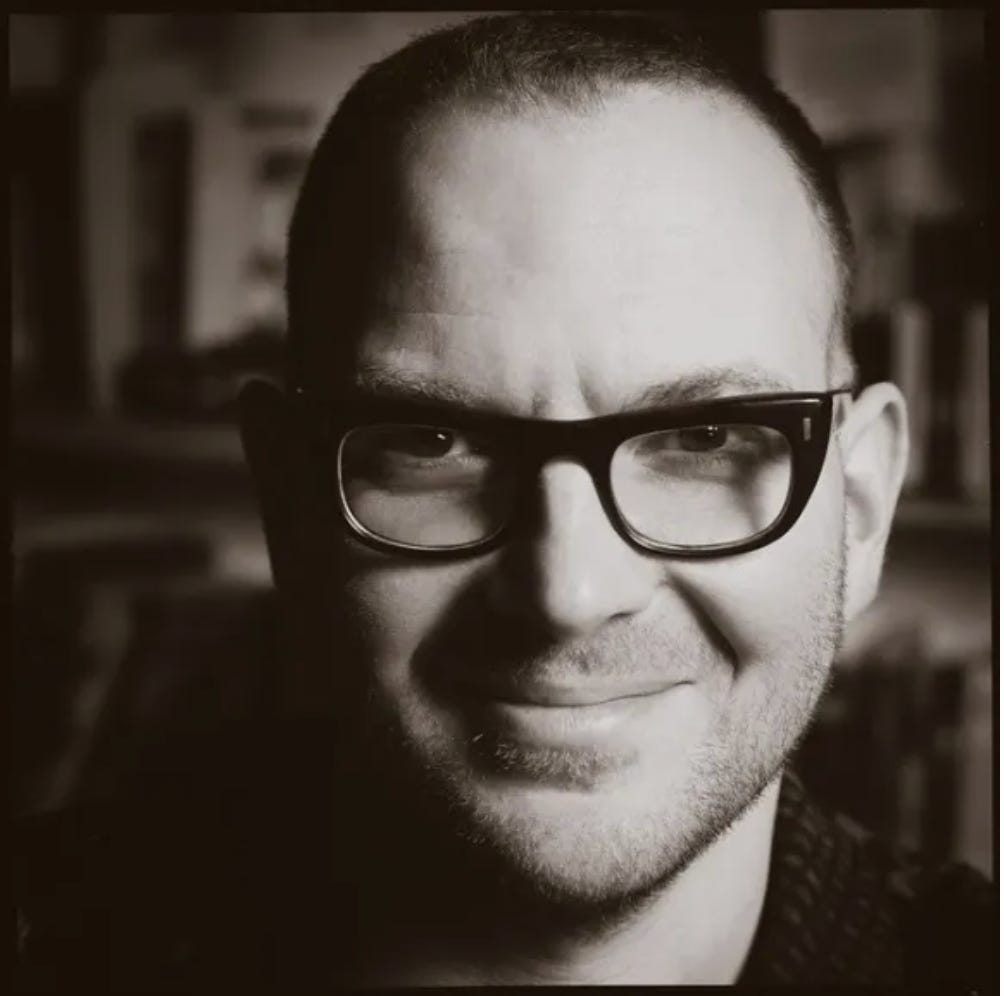
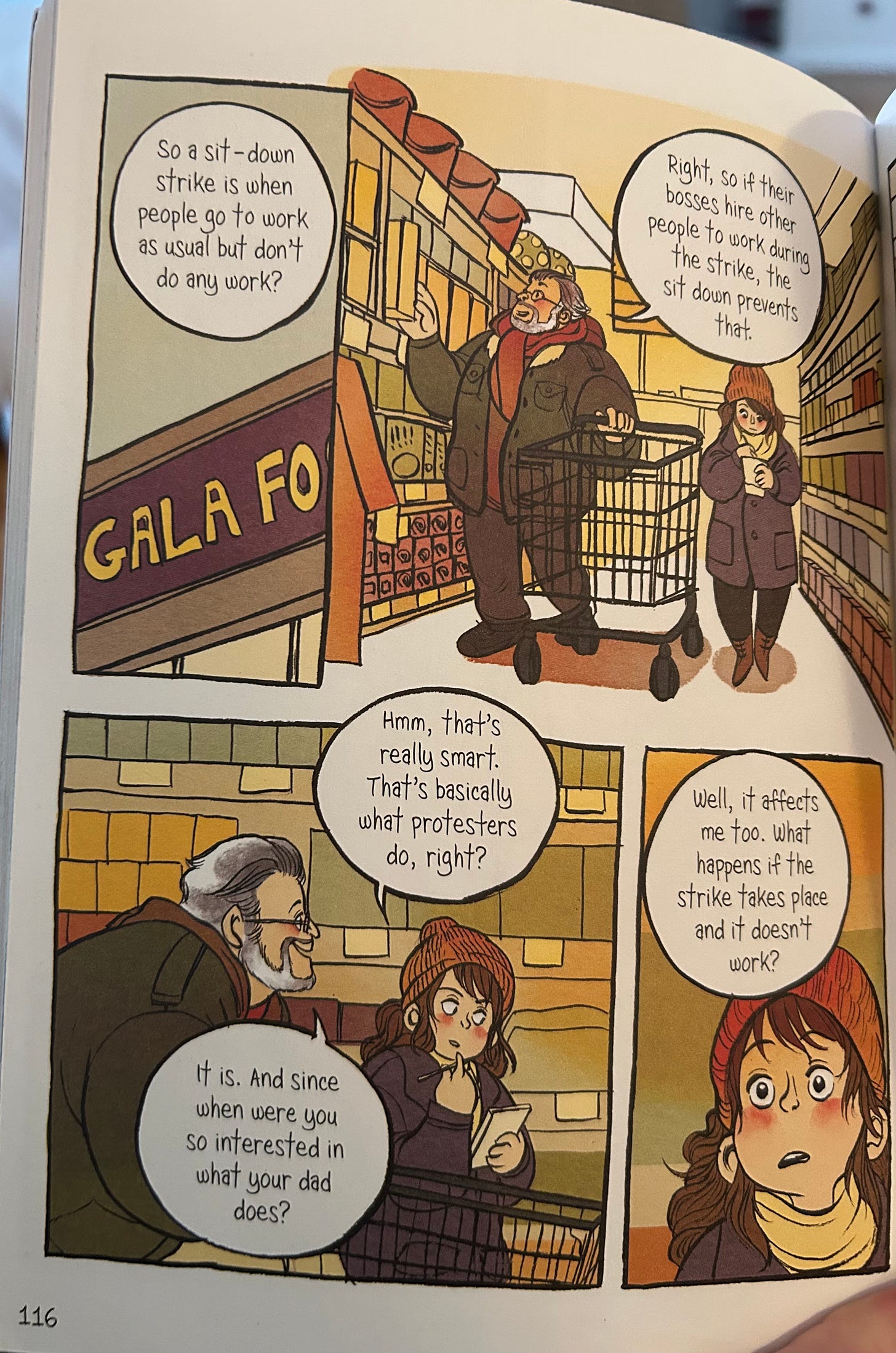
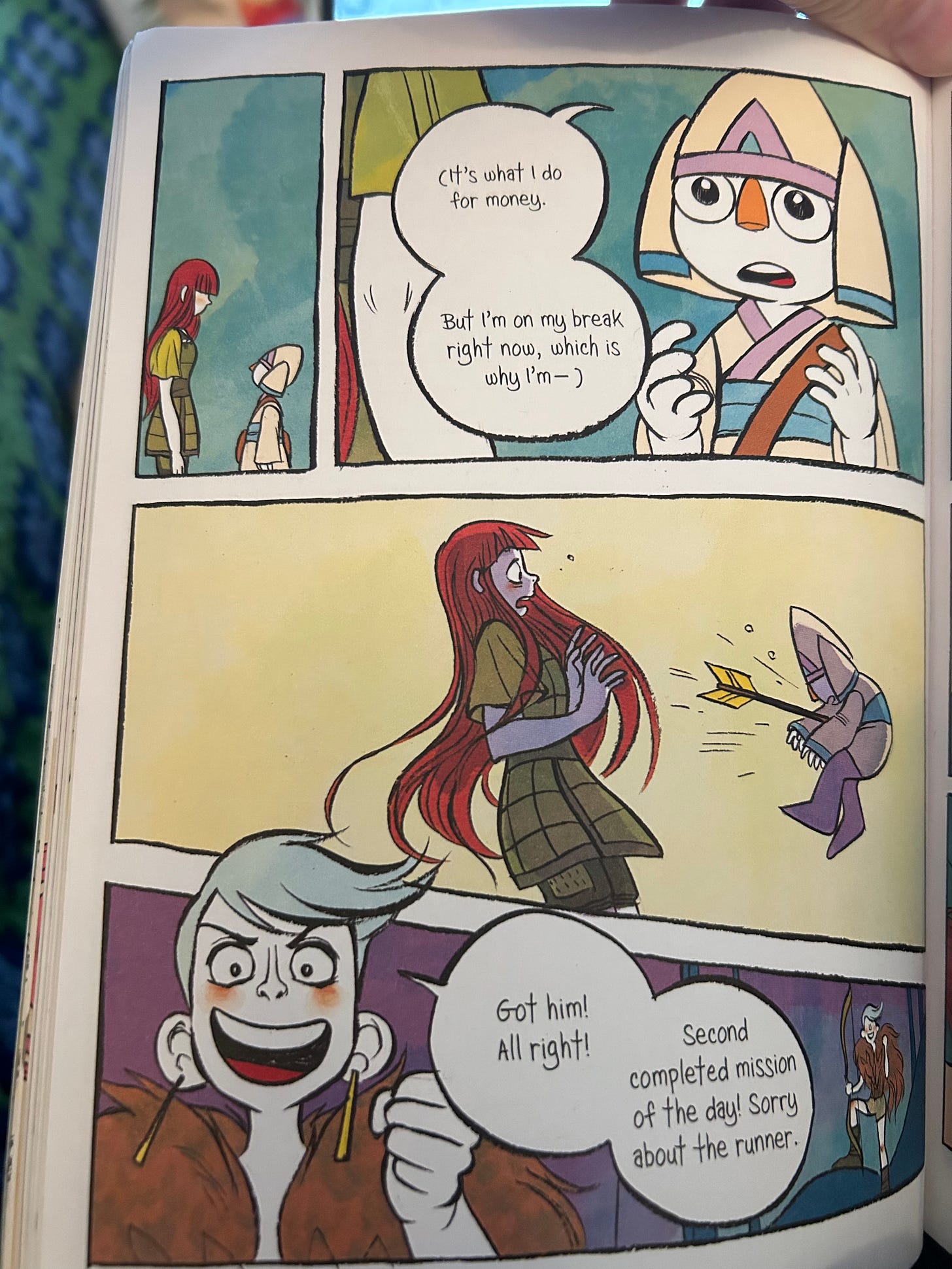
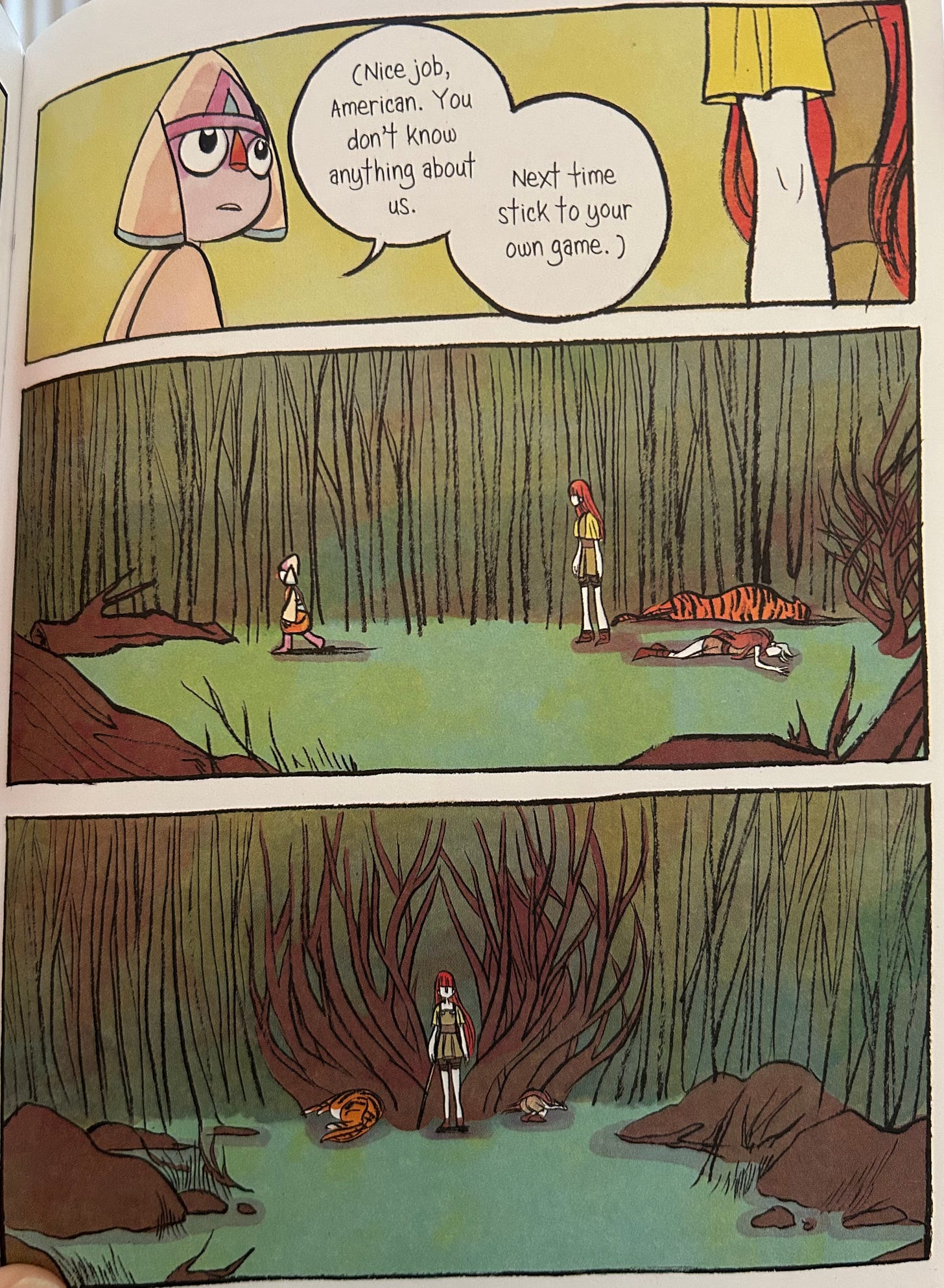
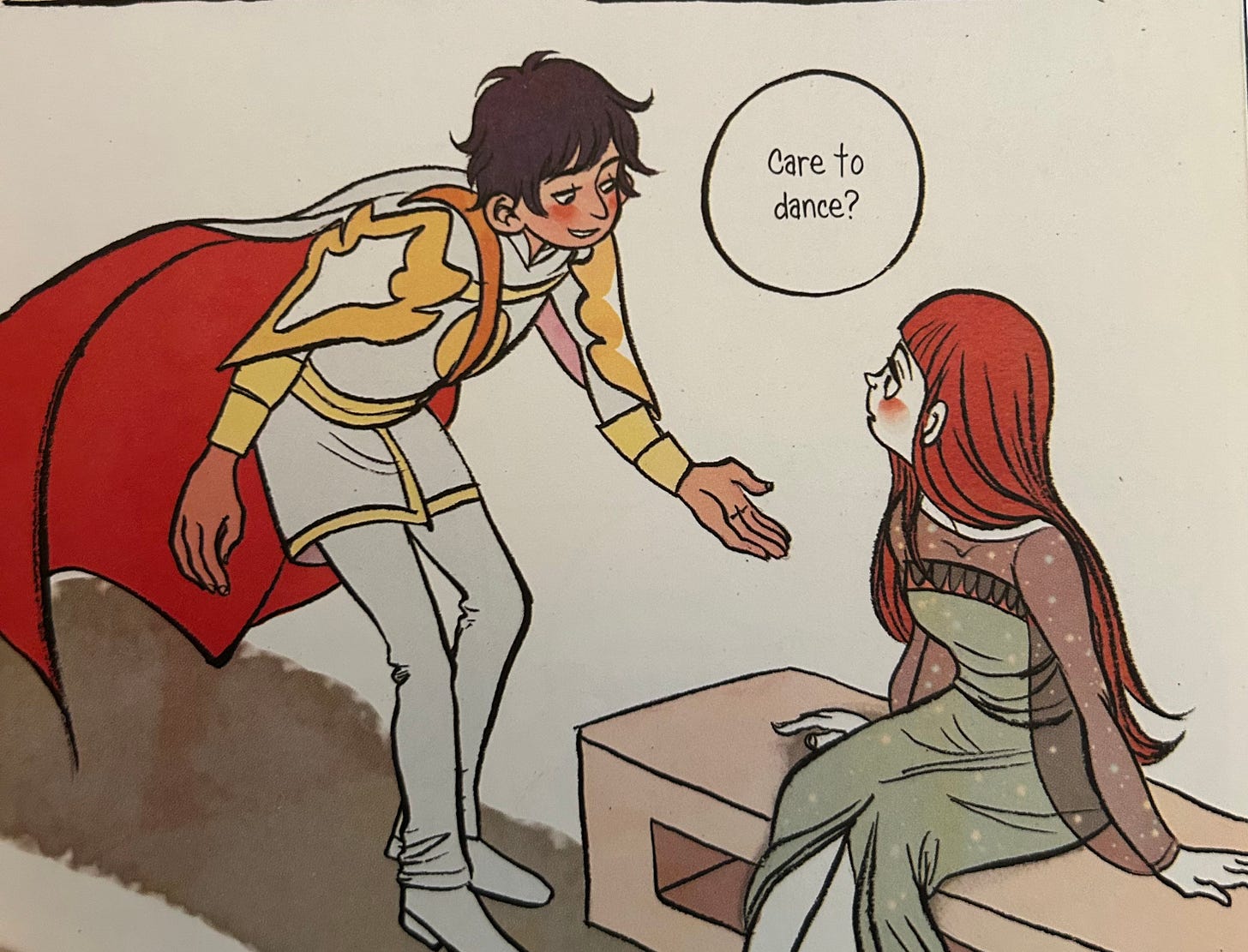

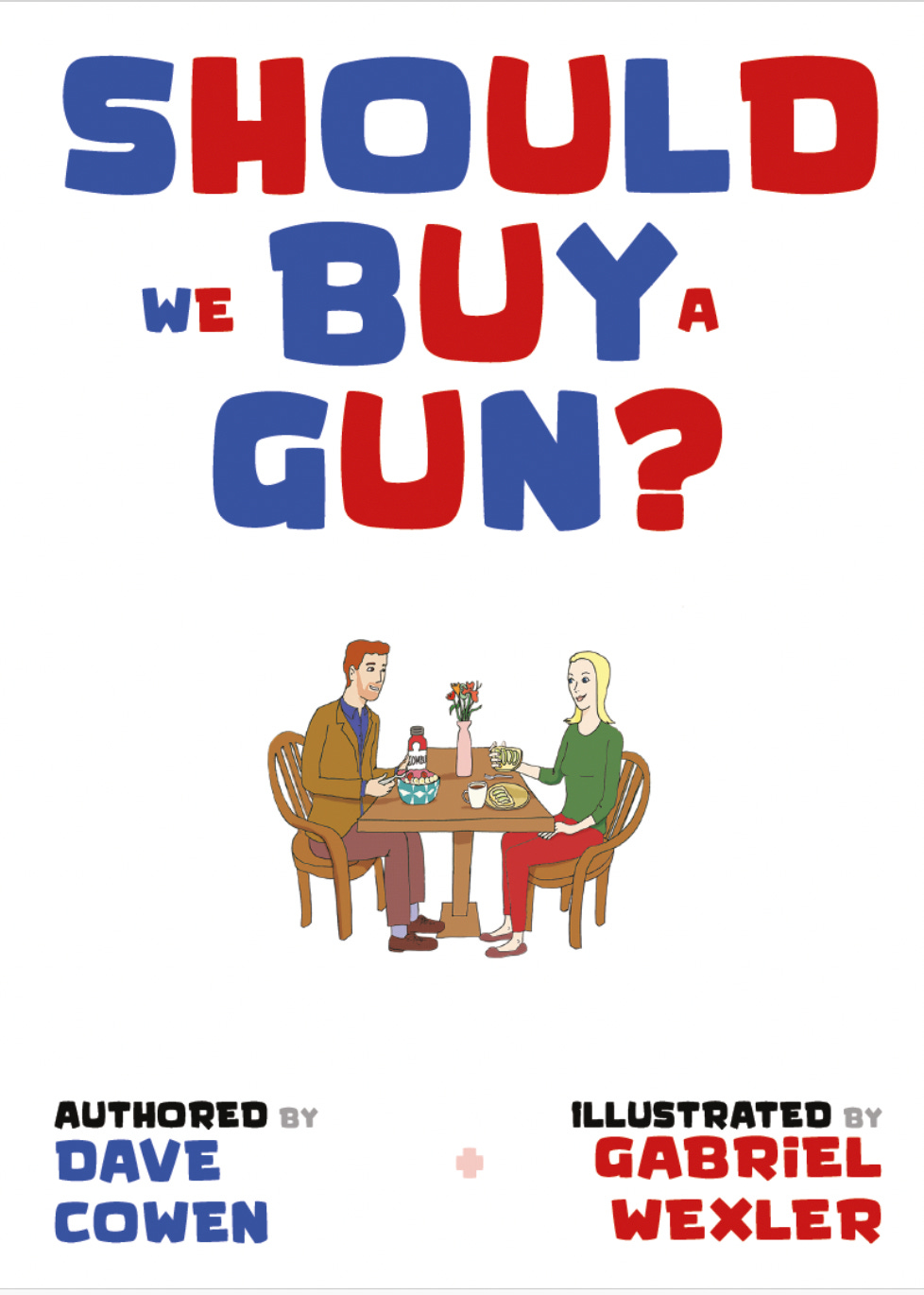
That blend of storytelling and real-life impact is seriously compelling. Can’t wait to see how the next graphic novels come to life.
I didn't realize For the Win was made into a graphic novel.